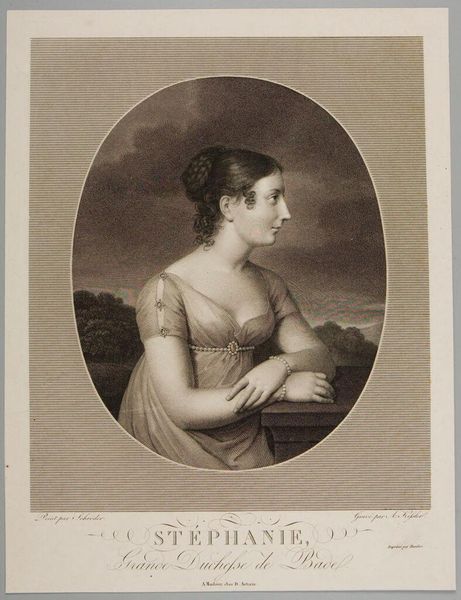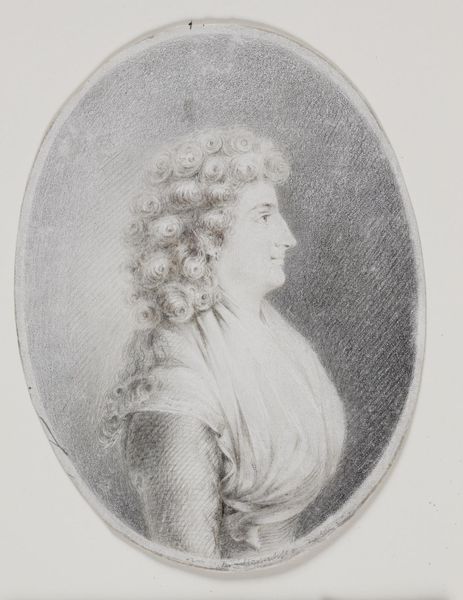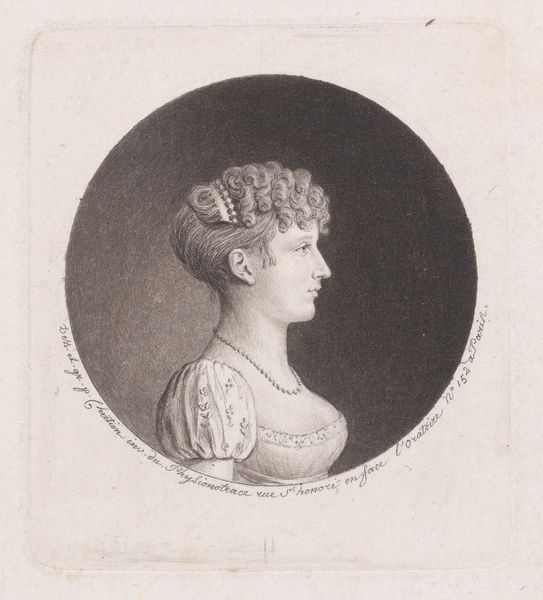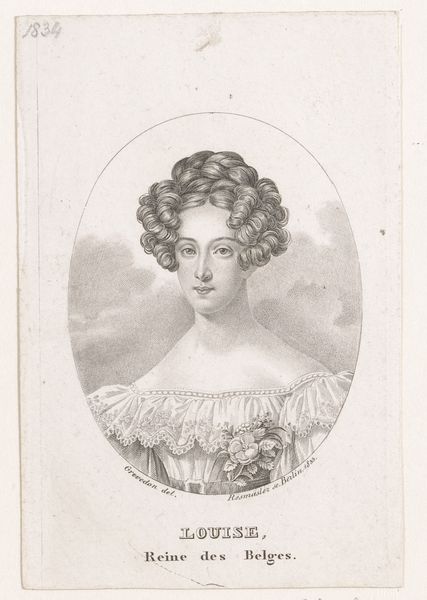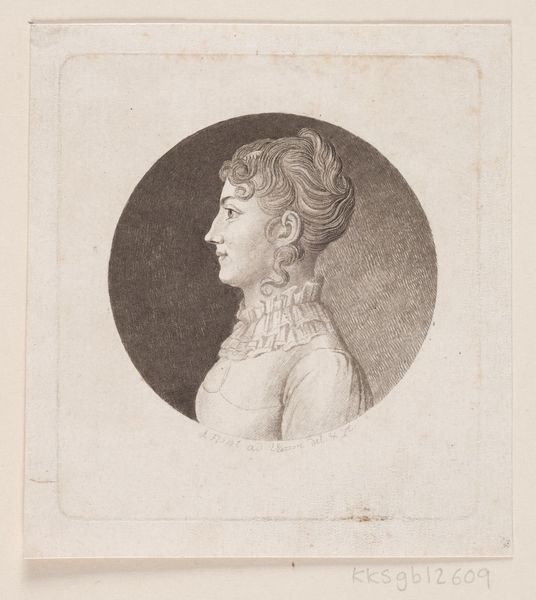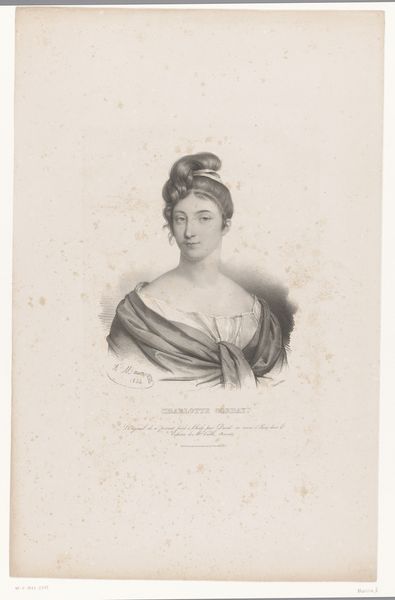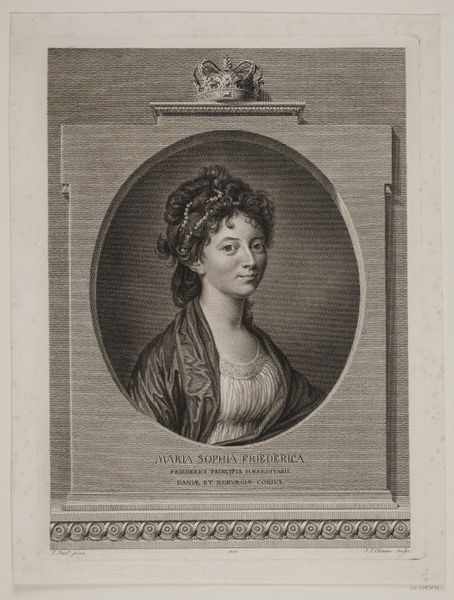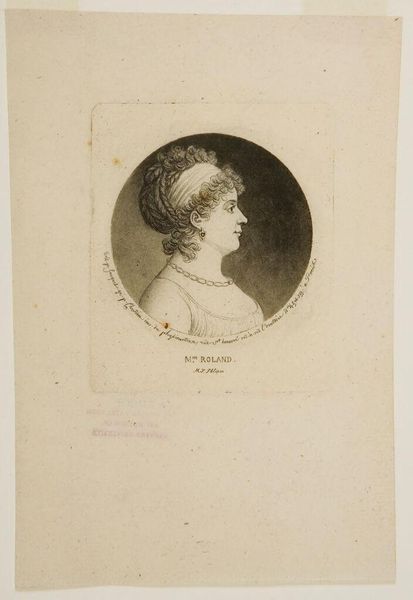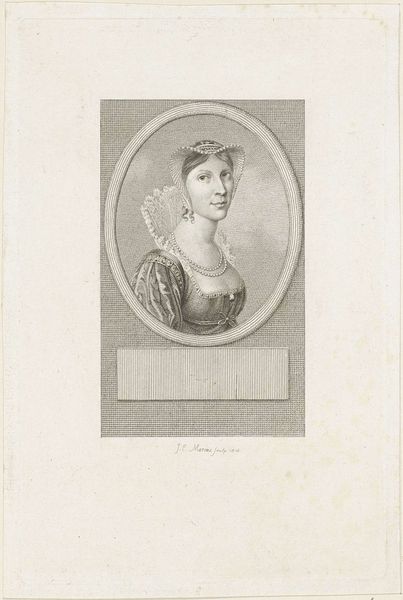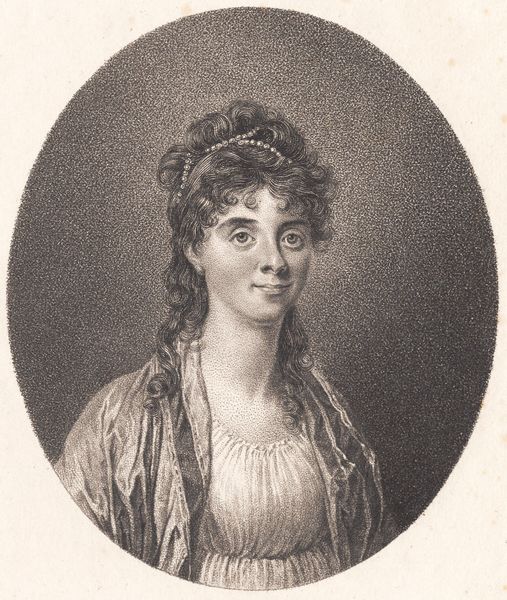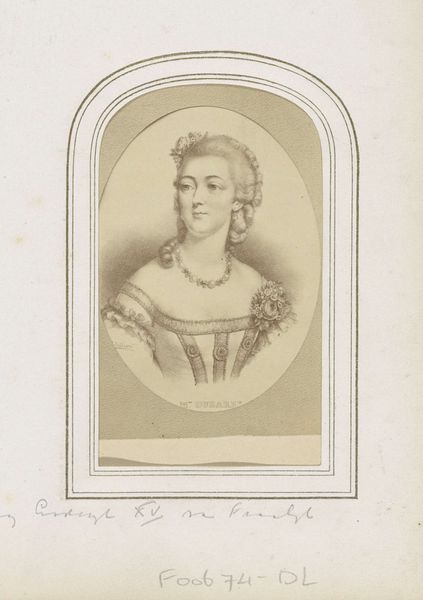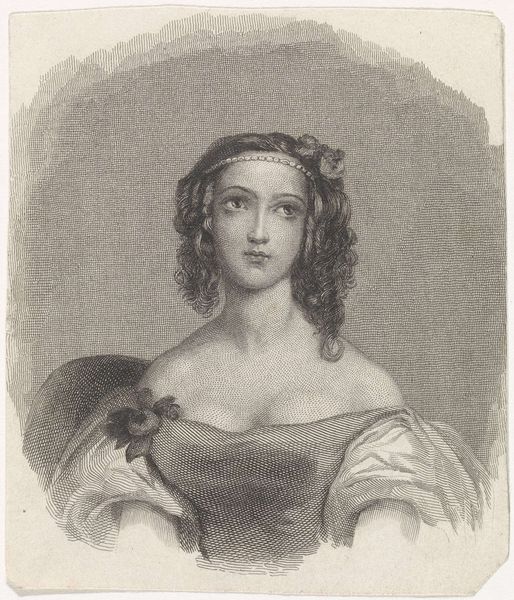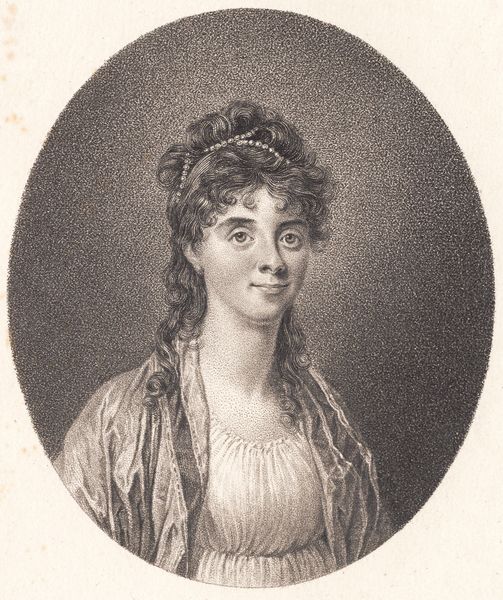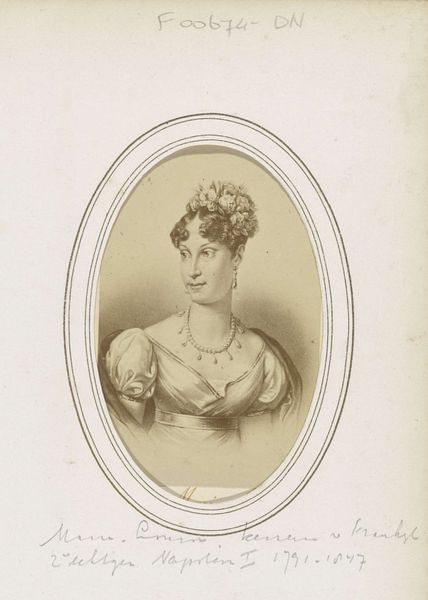
Portret van de schilderes Louise Charlotte de Neufville (geboren Ritter) 1803
0:00
0:00
ludwiggottliebportman
Rijksmuseum
paper, engraving
#
portrait
#
neoclacissism
#
paper
#
engraving
Dimensions: height 245 mm, width 157 mm
Copyright: Rijks Museum: Open Domain
Editor: Here we have Ludwig Gottlieb Portman's 1803 engraving on paper, "Portrait of the painter Louise Charlotte de Neufville (born Ritter)". It's rendered in a Neoclassical style, but what strikes me is its relative simplicity. What do you see in this piece that might tell us more? Curator: Beyond its Neoclassical restraint, I see a statement about women artists in the early 19th century. Consider the male gaze that often dominated portraiture. How does Portman, in depicting de Neufville, potentially subvert or negotiate this dynamic? Editor: That's interesting. I hadn't thought about who's doing the looking, so to speak. What aspects of the work lead you to that interpretation? Curator: The directness of her gaze, for one. There's an intelligence and self-possession there that challenges the passive roles often assigned to women in art. Also, think about the context: she's not just a subject, but a fellow artist. The portrait itself becomes a form of recognition, a valuing of her professional identity within a patriarchal society. Does that shift your perspective on the simplicity you observed? Editor: It does, considerably. The starkness now seems deliberate, focusing attention on her individual agency. The focus is not about frills, but it's a statement of self-determination in a time when that was often denied to women in the arts. Curator: Exactly. And understanding that historical context is crucial for moving past initial assumptions about style and composition, it reveals something far more powerful. Editor: This has definitely opened my eyes to the layers of meaning embedded within what I initially saw as a straightforward portrait. Curator: Precisely, art is always in dialogue with the society and history that produced it.
Comments
No comments
Be the first to comment and join the conversation on the ultimate creative platform.
